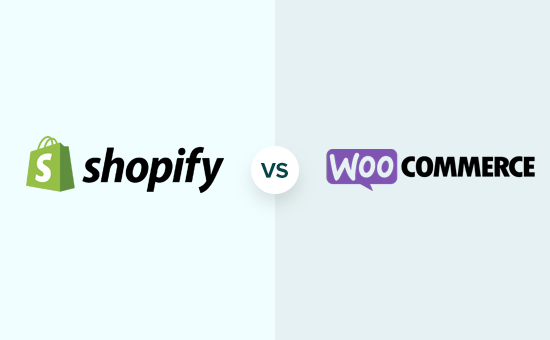When it comes to starting an online store, WordPress is a popular choice due to its flexibility and ease of use. Within the WordPress ecosystem, you have two main options for creating an e-commerce website: Shopify and WooCommerce. In this post, we’ll compare these two platforms to help you decide which one suits your needs best.
Shopify: The E-Commerce Powerhouse
Shopify is a dedicated e-commerce platform known for its simplicity and comprehensive set of features. While it’s not native to WordPress, it can be integrated seamlessly.
Pros of Using Shopify:
1. Simplicity and User-Friendliness: Shopify is designed with beginners in mind. Its user interface is intuitive, making it easy to set up your store quickly.
2. Hosting Included: Shopify provides hosting, which means you don’t need to worry about server management or performance optimization.
3. Security and Compliance: Shopify takes care of security, including SSL certificates and PCI DSS compliance, ensuring that your customers’ data is protected.
4. App Store: The Shopify App Store offers a wide range of apps and extensions to enhance the functionality of your store.
5. Support and Resources: Shopify offers 24/7 customer support and extensive documentation and resources.
Cons of Using Shopify:
1. Cost: Shopify comes with a monthly subscription fee, and there are transaction fees if you don’t use their payment gateway.
2. Customization: While Shopify allows customization, it may have limitations compared to a self-hosted solution like WooCommerce.
3. Ownership: You have less control over your data and store compared to self-hosted solutions.
WooCommerce: The WordPress E-Commerce Plugin
WooCommerce is a free, open-source e-commerce plugin that transforms your WordPress website into a full-fledged online store. It offers a high degree of customization and control.
Pros of Using WooCommerce:
1. Cost-Effective: WooCommerce is free, making it a budget-friendly option for small businesses and startups.
2. Full Control: You have complete control over your store, including data and customization.
3. Customization: WooCommerce offers a wide array of themes and plugins, allowing you to tailor your store to your exact specifications.

4. Scalability: It’s suitable for both small and large stores, and you can scale your business without worrying about transaction fees.
5. SEO-Friendly: WordPress and WooCommerce are known for their strong SEO capabilities, helping your store rank well in search engines.
1. Learning Curve: WooCommerce may have a steeper learning curve, especially if you’re new to WordPress.
Cons of Using WooCommerce:
2. Hosting Required: You’ll need to manage your hosting, which can be a technical challenge for some users.
3. Security Responsibility: While WooCommerce is secure, you’re responsible for ensuring your site’s security, including updates and maintenance.
Conclusion: Which is Right for You?
The choice between Shopify and WooCommerce ultimately depends on your specific needs and preferences:
- Choose Shopify if you prioritize simplicity, ease of use, and don’t mind paying a monthly fee for hosting and additional features. It’s an excellent choice for those who want a hassle-free e-commerce experience.
- Choose WooCommerce if you value customization, control, and cost-effectiveness. It’s ideal if you’re comfortable with WordPress and want to fully tailor your online store to your brand and vision.
Both platforms are capable of creating successful e-commerce stores, so assess your requirements and business goals before making your decision. Whichever you choose, WordPress remains a robust foundation for your online business endeavors.
Remember that no matter which platform you opt for, the success of your online store will also depend on factors such as product quality, marketing strategies, and customer service. Make sure to invest time and effort into these areas to ensure a thriving e-commerce business.
